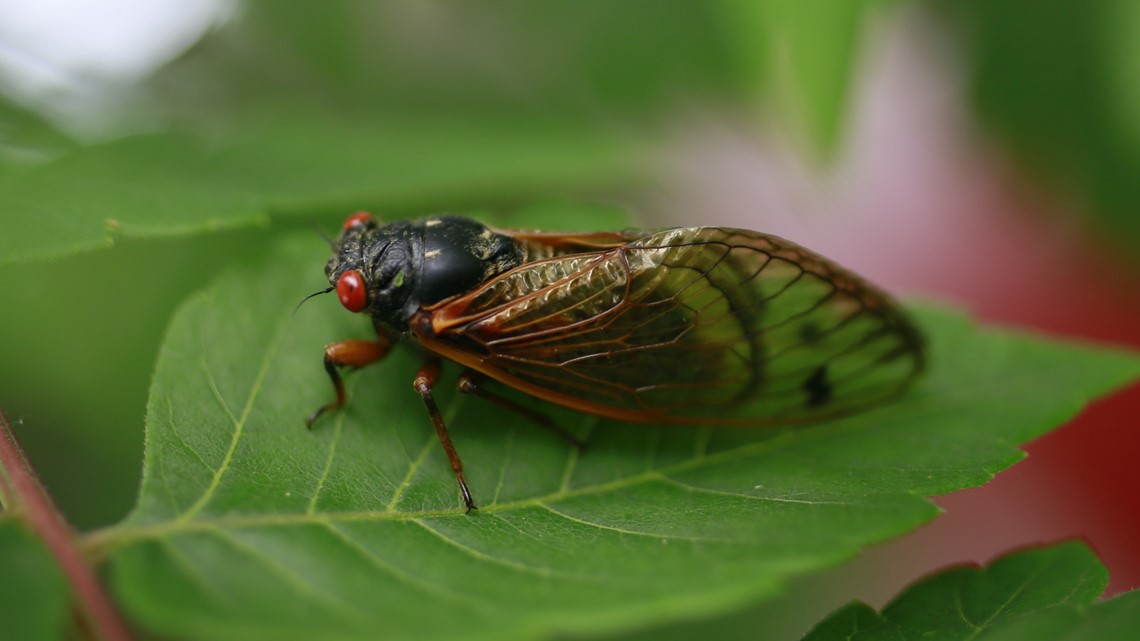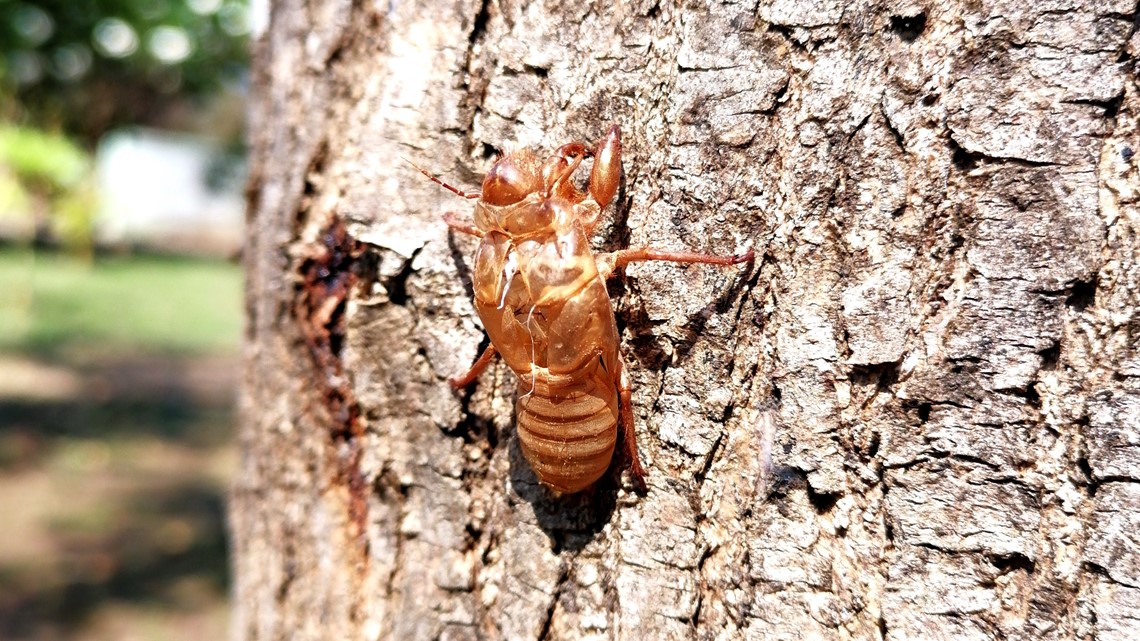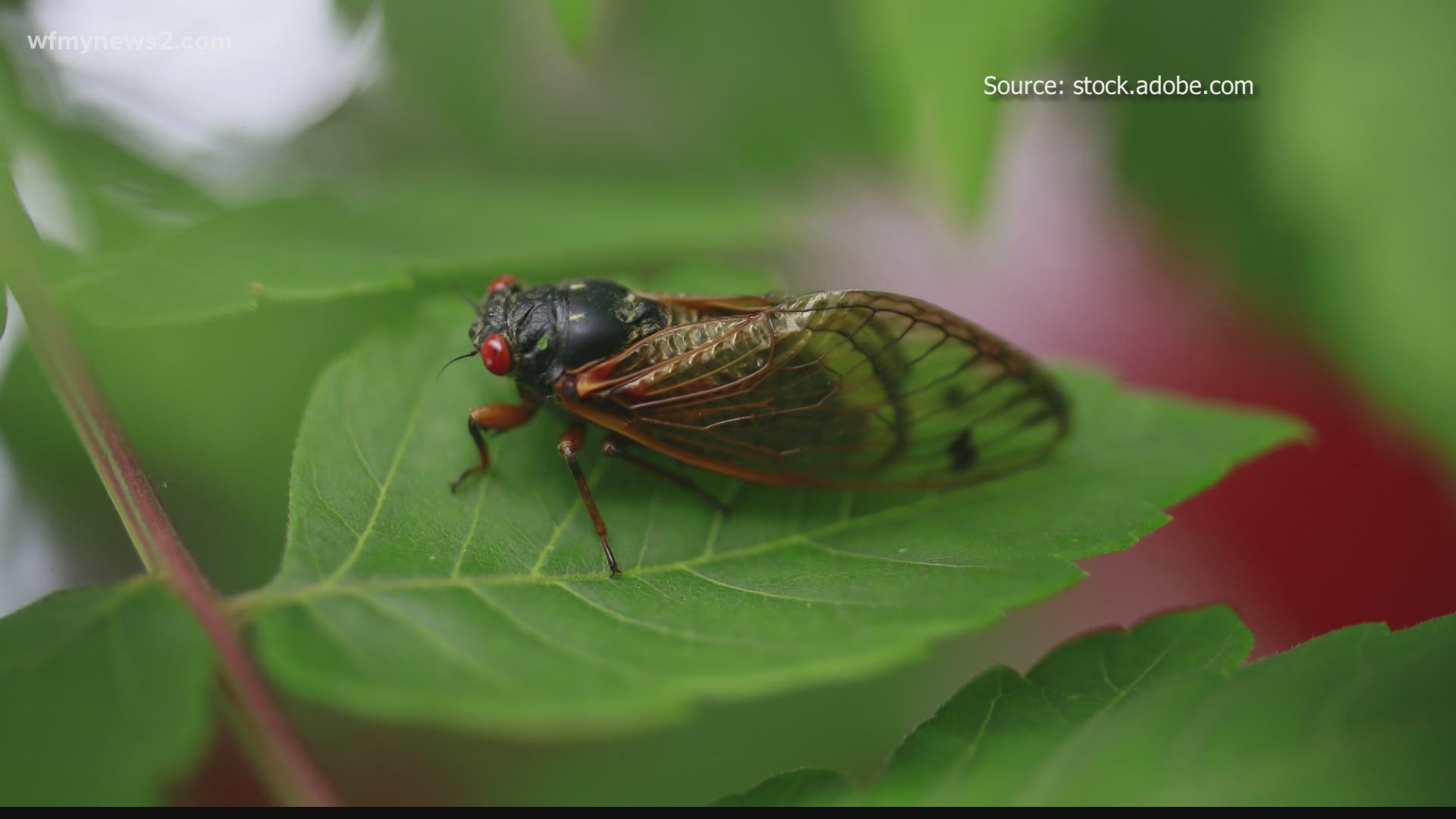GREENSBORO, N.C. — It's time to VERIFY all the buzz about the bugs enjoying this unseasonably-warm weather. Turns out, the noise you'll soon hear reverberating throughout North Carolina is 17 years in the making.
VERIFY QUESTION
WFMY News 2's Stacey Spivey asked Meghann Mollerus:
Is it true this is a cicada year, and is that what's causing the loud noise we're hearing outside?
VERIFY SOURCES
- NC State Extension
- Frank Fowler - biologist, vice president of McNeely Pest Control
VERIFY PROCESS
Both the NC State Extension and pest control expert Frank Fowler conclude yes, it is a cicada year, but that is not what is causing all the noise right now.
"What you're hearing now is probably frogs and toads that are just kind of waking up. Down in eastern North Carolina, they call them 'spring peepers.' They make a real loud ruckus noise, and it's time for a lot of these frogs to mate. (It's) similar to what cicadas do in the spring and summer.
Cicadas are coming -- countless red-eyed ones called Brood X.


The NC State Extension explained these Brood X cicadas spend most of their lives as nymphs, feeding on roots of trees. They live underground for several years and emerge in the spring, when the tree canopies have leaves. There are six broods of cicadas in NC. Brood X is '17-year cicadas.' They'll emerge this year, 2021, and not again until 2038.
"One of the theories that have such a long life cycle (is) so the generations don't overlap, and you have different populations of cicadas that come out different years, and that will actually better support the life cycle and keep the generations for very long periods of time," Fowler explained.
Though they look intimidating, and emit that shrill 'clicking' mating call that is characteristic of the species, Fowler said the cicadas are really beneficial to other animals in the ecosystem. They are a great source of protein, and they eat plants, so they won't bite you. They also don't do a lot of plant damage.


So, when will they rise from their slumber this spring? Fowler said the soil temperature typically has to be around 67 degrees. WFMY News 2 meteorologists Ed Matthews and Terran Kirksey predicted that will happen sometime in April, and since the eastern counties are generally warmer, they could see cicadas first.
VERIFY CONCLUSION
It is true 2021 is a cicada year -- a big one -- but right now, it's the frogs singing sweet songs of spring.
Do you have a VERIFY inquiry? Submit a post, screen shot or selfie video of the claim to Meghann Mollerus via:
Facebook: Meghann Mollerus News
Twitter: @MeghannMollerus
E-mail: Mmollerus@wfmy.com

